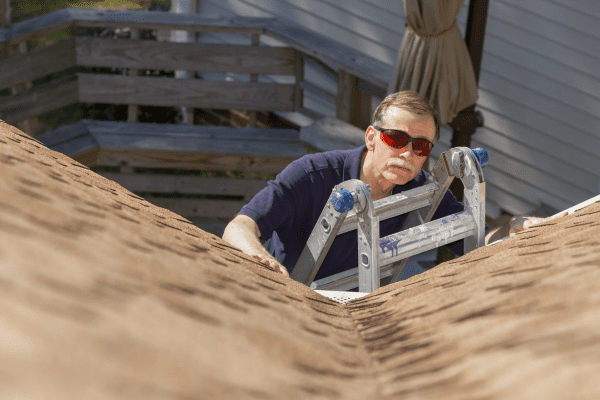What Happens After an Offer is Accepted in West-end Toronto
11/03/25

Understanding the Post-Offer Phase
You’ve accepted an offer… finally! It feels like the hardest part is over.
But there’s still a bit more ground to cover before the keys officially change hands.
If you’re selling in Bloor West Village, High Park, Roncesvalles, or The Junction, things can move fast, and staying a step ahead will help everything go smoothly.
Think of this stage as the home stretch. You’re lining up movers, packing boxes, and maybe even planning your next chapter. With a clear picture of what happens after an offer is accepted, you’ll handle each step with confidence and avoid last-minute surprises.
Here’s what to expect from the moment you accept an offer to the final handover on closing day.
Offer Response: Review, Negotiate, Decide

How to Respond to an Offer
Step 1: Review the Offer
Go over every detail with your real estate agent. Focus on:
- Purchase price – Does the offer meet your expectations and reflect current market value?
- Closing date – Is the timeline realistic for your move and next plans?
- Deposit amount – Is the buyer showing serious intent through a strong deposit?
- Buyer conditions – Are there any terms that could create delays or risks to the deal?
Step 2: Compare with Recent Sales
Evaluate how the offer compares to nearby sales in your neighbourhood and current market trends. This helps you understand if the offer is competitive.
Step 3: Negotiate if Needed
If parts of the offer don’t align with your goals, your agent can help you prepare a counter-offer. This is your opportunity to adjust price, timing, or terms.
Step 4: Respond Within Deadline
Offers typically have a time limit. Respond promptly with any changes or your final decision in writing. Missing the deadline could mean losing the offer.
Accepted Offer: Immediate Next Steps
What to Do Right After Accepting
You’ve said yes—congrats! But while it might feel like the finish line, this next stretch is where precision and follow-through really matter. A few key steps will keep everything on track and help avoid unnecessary stress.
Send Documents to Your Lawyer and Lender
Make sure your agent forwards the signed Agreement of Purchase and Sale to your lawyer and mortgage lender right away. They need time to prepare for closing and review any legal or financial obligations. Delays at this stage can create avoidable hiccups later on.
Secure the Buyer’s Deposit
The buyer will typically provide their deposit within 24 hours. This shows they’re committed and legally binds the agreement. Your agent will confirm that the deposit has been received and is safely held in trust.
Track Important Dates
Every agreement includes key milestones—condition deadlines, financing approval, and the final closing date. Add these to your calendar so you’re never caught off guard. Missing a deadline could open the door for a buyer to walk away.
Keep Communication Open
This is where teamwork really matters. Keep in touch with your real estate agent and lawyer throughout the process. Quick updates and prompt responses will help prevent delays, especially if the buyer has questions or requests.
Even if everything feels under control, staying proactive now means fewer surprises later. And if you ever feel unsure, a quick check-in with your agent can provide the clarity you need.
Looking for more insights and helpful tips? Subscribe to get these delivered straight to your Inbox!
Managing Conditional Offers
Common Conditions and How to Handle Them
An accepted offer often comes with conditions—these are clauses the buyer needs to satisfy before the sale becomes firm. This might feel like a waiting game, but it’s also a time to stay involved and responsive.
Financing
Most buyers include a financing condition to give them time to finalise mortgage approval. This may involve an appraisal or income verification. If their lender needs access to the property or documents, your cooperation helps things move quickly.

Home Inspection
Inspections usually happen within the first few days. A qualified inspector will assess the home for issues. If anything concerning comes up, buyers may ask for repairs, a credit, or a price adjustment. Don’t panic—these requests are normal and negotiable.
Status Certificate (Condos)
For condo units, the buyer’s lawyer will review the status certificate, which includes information about the building’s financial health and any pending legal issues. They’ll need a few days to go through it thoroughly, so patience here is key.
What You Should Do
Provide Access for Inspections
Make the home available for inspections, appraisals, or follow-up visits. Clear communication with your agent about scheduling makes this step much easier.
Track Condition Deadlines
Each condition has an expiry date. Use a checklist or digital calendar to stay aware of when each one is due. Once all are met or waived, the deal becomes firm.
Negotiate Repairs or Credits
If the inspection turns up issues, your agent will help you decide how to respond. Some sellers offer to fix the problem, others provide a credit. Either way, aim for a fair solution that keeps the deal on track.
Keep Your Lawyer and Agent in Sync
Share all updates promptly with your lawyer and agent. This ensures that everyone is working from the same information and can act quickly if something unexpected comes up.
These conditions might feel like hurdles, but with the right support, you’ll get through them smoothly. Stay flexible, responsive, and informed—and you’ll be one step closer to the finish line.
Between Conditional Drop and Closing

Finalizing the Sale After Conditions Are Met
Once all buyer conditions are met or waived in writing, your sale officially becomes firm. It’s a big milestone worth celebrating, but there are still a few essential steps left before closing day.
Confirm the Sale is Firm
Your agent will notify all parties and update the listing to reflect the firm status. This is your green light to begin packing and planning your move with confidence.
Start Pre-Closing Planning
With the closing date now locked in, begin scheduling movers, gathering packing supplies, and arranging mail forwarding. Give yourself plenty of time so the final week doesn’t feel rushed.
Complete Repairs or Agreed Tasks
If your agreement includes any repair work or cleaning commitments, now’s the time to take care of them. Be sure to keep receipts or records in case they’re requested by the buyer’s lawyer.
Update Key Contacts
Let your lawyer, utility providers, and home insurance company know that the sale is firm. This helps ensure everything transitions smoothly on closing day, especially utilities and billing.
Keep Your Documents Organised
Store all contracts, receipts, and related emails in one place. This will make the closing process easier and can help with tax reporting later.
This stage is about staying organised and tying up loose ends. With your team behind you, you’re almost there—just a few more boxes to tick.
Closing Day Preparations and Costs

What Sellers Need to Prepare
Closing day is when everything becomes official, but it can move quickly. A bit of prep will make the day stress-free and help you tie off all financial and legal obligations with confidence.
Understand Your Closing Costs
Before closing, your lawyer will provide a breakdown of the final figures. Be prepared for:
- Real estate commissions – Typically split between the listing and buyer’s agents
- Legal fees – Your lawyer’s cost for handling the transaction
- Mortgage discharge fees or penalties – If you’re paying off a mortgage early, you may face a fee
- Property tax and utility adjustments – You’ll be responsible for these up to the closing date
- Surveys or compliance letters – May be required if requested by the buyer’s lender
Work with Your Lawyer
Your lawyer plays a central role in closing. They’ll review all documents, handle the transfer of title, receive the sale funds, and ensure disbursements (like commissions and mortgage payout) are completed correctly. Stay responsive if they request signatures or additional details.
Get the Property Ready
Buyers expect the home to be in the condition agreed to in the offer. This means:
- Appliances are clean and functional
- Keys, garage remotes, and codes are labelled and ready
- Repairs (if any) are fully completed
- Home is broom-swept and empty unless otherwise agreed
Schedule Utility Transfers
Contact your utility providers and let them know the date of the sale. Arrange for final meter readings and to have your accounts closed or transferred as needed.
Keep a Final Checklist Handy
Having a day-before checklist can help you tie up last-minute tasks like removing personal items, cleaning, and confirming key handoff instructions with your lawyer or agent.
Preparation now will make for a smooth, celebratory handover. You’re almost there!
Wrapping Up Before You Move
Closing day arrives—and with it, the final pieces of the puzzle. At this point, the paperwork is done, the funds are transferring, and it’s time to officially pass the torch.
Prepare for Final Walkthrough
Buyers usually do a last check of the property just before closing. They’ll confirm everything is in the expected condition and any agreed repairs are completed. Make sure the home is clean, empty (unless otherwise arranged), and ready to welcome its new owners.
Coordinate with Your Lawyer
Your lawyer will confirm the closing time and oversee the key exchange. They’ll typically pass the keys and any garage remotes or alarm codes to the buyer’s legal team. If you’ve agreed on a different method—like leaving keys at the property—make sure that’s clearly documented.
Handle Last-Minute Questions
It’s not uncommon for buyers to ask questions right up until the finish line. Stay available to your agent for any quick clarifications or helpful tips for the new owners (like how to work the thermostat or when garbage pickup happens).
Celebrate the Sale
Once your lawyer confirms the funds have transferred, the sale is complete. You’ve done it! Take a moment to celebrate, notify your contacts of your address change, and wrap up any remaining moving tasks.
This is the final chapter of your sale journey—and the beginning of your next one. And if you ever plan to sell again, you’ll know exactly what to expect.
Helpful Tip
In areas like Swansea and Bloor West Village, where demand remains strong, working with a team that knows the neighbourhood makes all the difference. For a smooth sale experience, reach out to The Smith Proulx Team. We’re always ready to help local sellers close confidently, because we’re locals, too!
Sign Up For Our Newsletter
Looking for more great real estate content? Get it delivered to your inbox with our newsletter!



